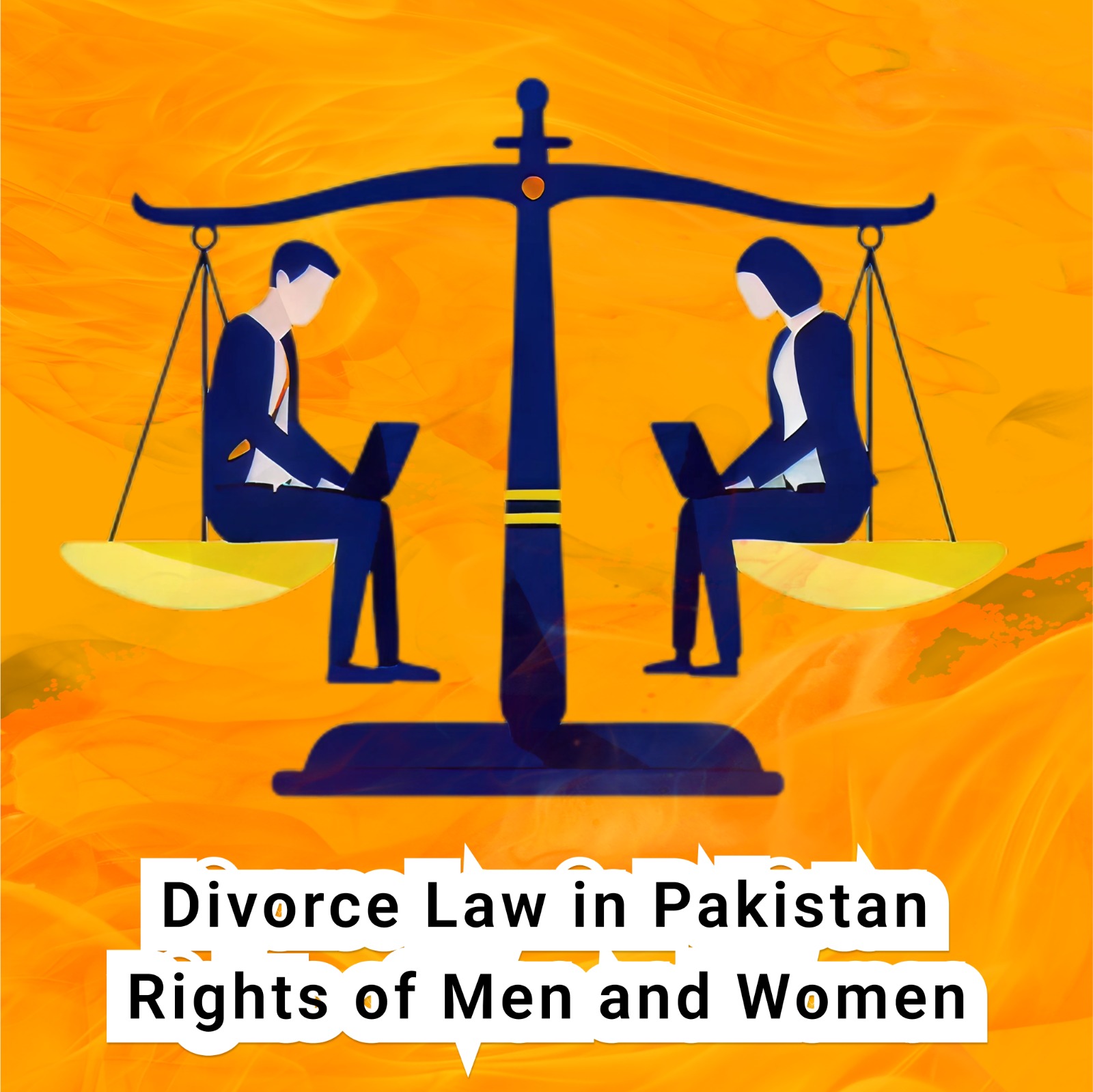
Divorce:Rights of men & women
Introduction
Divorce in Pakistan is governed by Islamic and secular laws, ensuring both men and women have legal rights. While men traditionally have more authority in initiating divorce, women also have legal avenues to seek separation. Understanding these rights is crucial for both parties to navigate the process fairly.
Divorce Rights for Men in Pakistan
1. Right to Talaq (Islamic Divorce)
- A Muslim man in Pakistan has the unilateral right to pronounce Talaq (divorce) as per Section 7 of the Muslim Family Laws Ordinance (MFLO), 1961.
- After pronouncing Talaq, he must notify the Union Council in writing and send a copy to his wife.
- A 90-day reconciliation period follows, after which the divorce becomes final if reconciliation fails.
2. Financial Responsibilities After Divorce
- The husband must pay the agreed dower (Haq Mehr), if unpaid.
- He may need to provide financial support for children.
- If mentioned in the marriage contract, he might be liable for additional maintenance.
Divorce Rights for Women in Pakistan
In Pakistan, untangling a marriage requires legal awareness. Knowing the Rights of Men and Women in Divorce helps ensure fairness in settlements, custody, and support. Get trusted legal advice at ZOR Services.
1. Right to Khula (Judicial Divorce)
● A woman can seek divorce through Khula, where she files a petition in the Family Court.
● The court grants Khula if reconciliation efforts fail.
● The wife may have to return part or all of the Haq Mehr.
2. Right to Delegated Divorce (Talaq-e-Tafweez)
● If the Nikahnama (Marriage Contract) includes a delegated right of divorce, a woman can divorce her husband without court intervention.
● This provision must be explicitly accepted at the time of marriage.
3. Right to Maintenance and Child Custody
● Women can claim financial maintenance for themselves and their children after divorce.
● Under the Guardian and Wards Act, 1890, mothers usually get child custody, while fathers are responsible for financial support.
Legal Process for Divorce in Pakistan
Understanding the Legal Divorce Process in Pakistan is essential for both parties to ensure a smooth separation. Get expert legal help at ZOR Services.
For Men (Talaq)
1. Pronounce Talaq.
2. Notify the Union Council in writing.
3. Observe a 90-day reconciliation period.
4. If reconciliation fails, divorce is finalized.
For Women (Khula)
1. File a petition in the Family Court.
2. Court issues a notice to the husband.
3. Court attempts reconciliation.
4. If unsuccessful, the court grants Khula.
5. Wife returns part or full Haq Mehr if required.
Impact of Divorce on Both Parties
- Emotional & Social Stigma: Divorce carries social implications, but legal protections ensure fair treatment.
- Financial Adjustments: The division of assets and maintenance responsibilities are legally addressed.
- Parental Rights: Custody disputes are common; courts prioritize the child’s well-being.
Conclusion
Divorce laws in Pakistan uphold the rights of both men and women, ensuring fairness and protection. While men have direct rights to divorce, women also have legal recourse throughKhula and Talaq-e-Tafweez. Understanding these laws empowers individuals to make informed decisions and seek justice where necessary.




